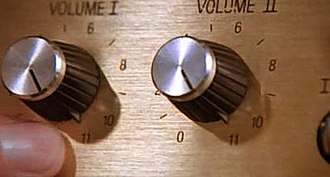C T wrote: Mon Jun 26, 2023 9:41 am
I've been reading this thread with interest but struggling to keep up.
Please, treat this question as an uneducated trying to simplify things.
Are we essentially saying?:
Most UK businesses are in debt
Increasing interest rates increase the cost of their debt
This means they need to put their prices up
This drives inflation up
So all this policy is really achieving is helping those who have cleared their mortgage and have savings?
It's mostly been me I guess. But I've just focused on the reaction (rising interest rates), a broader overview explains more. To keep the post shorter any terms that aren't clear, will be easily explained by Google.
1. There's increasing inflation. There's no real disagreement that this is supply side generated (the cost of inputs rising and supply chain issues, or put another way Covid/Ukraine/Brexit, making goods more expensive). Insane Homer made a good post up the thread the other day, that because this inflation is supply side generated and not demand side (increasing wages are used to compete for the same amount of supply and pull prices higher), this will all disappear from the economy in time, so it's questionable if raising interest rates regardless of the type of inflation that's occurring is actually the correct course of action. Danny Blanchflower and Adam Posen, are two economists that have both been on the BoE's interest rate setting Monetary Policy Committee, both hold this view, and both are especially critical of how little Brexit is mentioned.
2. The orthodox/neoliberal/Thatcherite (any of these describe it) response to rising inflation is to raise interest rates. To incentivise saving and force those with debt to spend more servicing that debt, this takes money out of the economy (decreasing demand). Not everyone is hit equally by this, anyone without a mortgage and with savings, does better in absolute and relative terms. The opposite happens to anyone with a mortgage and with no savings, they get poorer in absolute and relative terms. Andrew Bailey (governor of the BoE) mentions the "wage-price spiral" to justify interest rate rises. The wage-price spiral is a feedback loop of wages rising, which pulls prices up, which means wages rise, etc. It's a theory that explains demand side inflation, which is heavily criticised by the left (they think it's used to suppress wages) and the right (they argue inflation arises from increasing money supply, hence their love of gold etc).
Regardless there's no real argument that this inflation is supply side generated, and the response has been demand side.
3. My observation is that the increased cost of servicing debt is being pushed onto higher prices. The orthodox/neoliberal/Thatcherite view is that this is impossible, because the market sets the price. If a burger costs £2 to make it can not be sold for any price the business chooses (in other words costs cannot be passed on), instead an interplay of supply (how many burgers are available on the market and their production cost) and demand (how many people desire burgers and how much spending power they have) dictates the price, basically if the burger seller decides to set the price at £10 they sell no burgers if the market is pricing burgers at £3-£5. This doesn't take into account many factors, but most importantly how much of a monopoly the business has and therefore how hard it is to compete against it. If a business has sunk costs into the billions and has a very large slice of a market, then they're more able to dictate a burger does now cost £10, because the market and the business are strongly overlapping entities. Which is basically what Primark have done. And given the amount of debt all businesses are carrying there's also market incentive to push additional debt servicing costs into prices (if it's a competitive market, without much monopolisation, but most participants increase prices to service debt then that is the market price). The assumption when the orthodox/neoliberal/Thatcherite viewed was formed, was that there wouldn't be free money for a decade and a half that shaped the entire economy.
You can find a lot in the media on 1 and 2, nothing on 3 though. 2 is what you'll mostly hear about. In my opinion core inflation rising whilst both supply side inflation declines and interest rates have been rising for over a year, is mostly about 3. I could be wrong, this is complex stuff. But the BoE modelling/forecasts they use to set rates have been wrong already.
